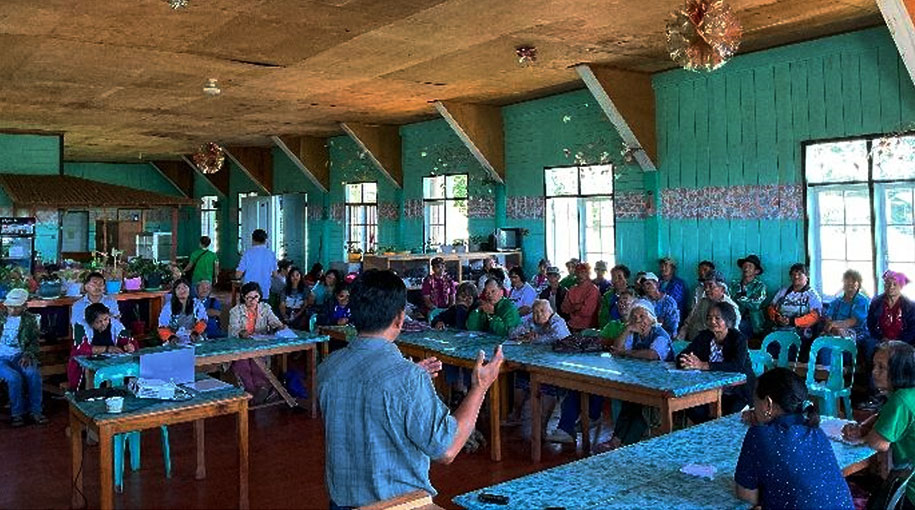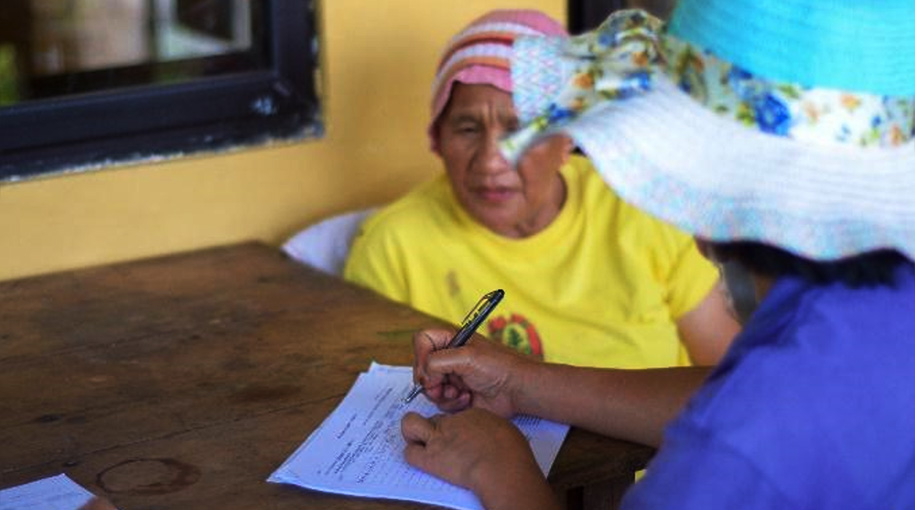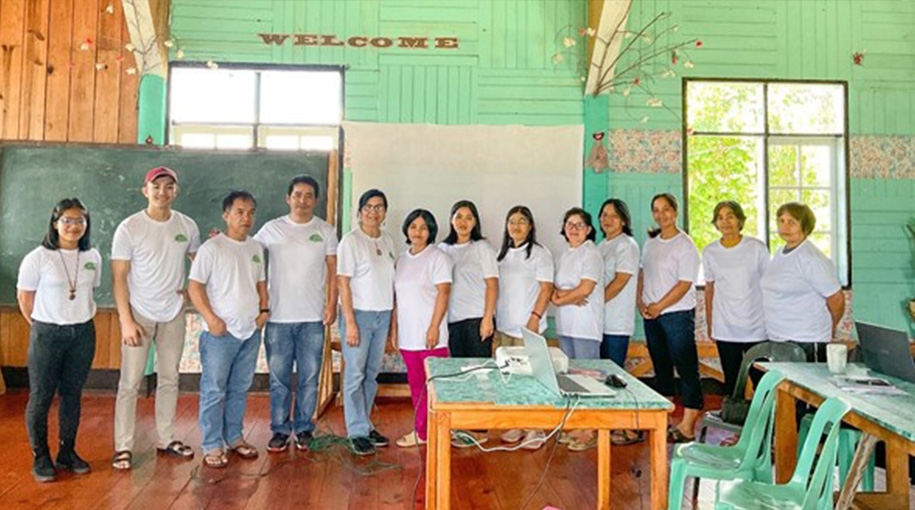Baguio City, Philippines - A training-orientation for the Household Survey enumerators and encoders took place on June 7-8, 2023, in Bangaan, Sagada, Mountain Province, Philippines with support from SwedBio.
The main objective of the activity was to orient the research enumerators and encoders in order for them to have a clear and organized research implementation in the community. Additionally, the household survey would ultimately result in the creation of a baseline dataset, serving as a vital foundation for the organization’s future endeavors.
PiTO Chairman Herman Soliaban warmly welcomed facilitators and participants, emphasizing the importance of speedy action in achieving sustainable development, hand in hand with strategic planning. “Kas-ano nga [matungpal nan] sustainable development nu aped plano, dapat [nu waday] plano, action agad” (To achieve sustainable development, action must accompany our plans, not just remain idle), Soliaban said.
A forum on the Indigenous Peoples' Rights Act (IPRA) led by Attorney Wilson Kalangeg, Mountain Province provincial officer of the National Commission on Indigenous Peoples (NCIP), sought to deliberate and address pertinent issues concerning IPRA. Present during the forum were not only the enumerators and encoders but also invited elders representing the PiTO and Tanulong Tribe from various barangays of Sagada, namely Banga-an, Pide, Aguid, Fedilisan, Tanulong, and Madungo.

After the forum, Ms. Florence Daguitan of Tebtebba’s Philippine Program, discussed the Community-Based Monitoring and Information System (CBMIS), emphasizing its role on how this system empowers indigenous peoples and communities to monitor their community's well being, oversee the condition of their territories and protect their natural resources.
This was then followed with the presentation of socio-economic works (SEW) by Roger Lambino of Tebtebba’s Philippine Program. Lambino shared several successful initiatives undertaken in collaboration with the organization and addressed their strengths and weaknesses.
Zenaida Garambas, also of Tebtebba’s Philippine Program, then presented the instruments and methods for data gathering. Through this, enumerators and encoders provided with a more in-depth understanding of the fundamental tools, ethical principles and practices necessary for effective data gathering
Luis Edpis and Kreja Casiw from Tebtebba’s Philippine Program provided participants with examples of possible concrete answers for the questionnaires. They offered samples of practical and informative responses that participants could refer to as valuable references.

Finally, a workshop within the community was then conducted to further assess the encoders and enumerators. The purpose of the workshop was to gain an understanding of their strengths and areas for improvement. After completing the workshop, the enumerators were asked to share their experiences and highlight any areas where they faced challenges.


